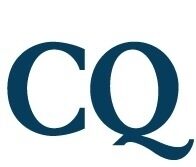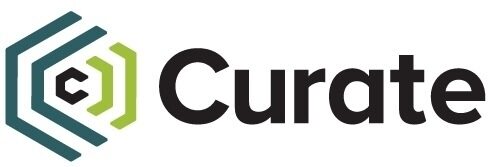How IJM Uses Knowlegis to Track 100s of Meetings With Congress Each Year
International Justice Mission
What do you do when you have to make and track 100s of Hill meetings?

International Justice Mission is the largest anti-slavery organization in the world, with 17 international offices staffed by lawyers, investigators, social workers, and community activists.
Every policy recommendation IJM makes to Congress is informed by what they’re seeing globally about how the crime operates and what needs to be put in place to stop it.
“We have this unique privilege in the human rights space in that our policy work is informed directly by our casework in the field,” says IJM’s senior director of advocacy, Eileen Campbell. “We identify the policies and resources that would be very helpful from the US government in terms of really moving the ball and combating the crime.”
What Policy & Advocacy Look Like for IJM
Their advocacy and policy team develops a legislative agenda and then works with friends in Congress to bring actual legislation to the floor.
A huge recent win for the organization was the End Modern Slavery Initiative Act in 2016.
“We worked very closely with Senator Bob Corker who was chairman of the Senate Foreign Relations Committee to get that bill introduced, and ultimately passed,” says Campbell.
For their digital advocacy, IJM uses a FiscalNote advocacy tool as their digital advocacy platform.
Keeping Track Of Those All-Important Meetings
Given the huge scope of their mission to move their issues forward, IJM’s D.C. staff holds several hundred meetings with Congress each year.
Ready to see for yourself?
Learn how Knowlegis helps you identify stakeholders, contact them directly, and keep detailed notes on every interaction.
While working on the End Modern Slavery Initiative Act alone, they racked up 459 constituent lobbying meetings over the course of two years.
That staggering amount of legwork generates an overwhelming amount of intelligence as well as questions and comments, all of which need to be kept track of.
To do that, IJM uses Knowlegis platform, which is a real-time congressional staff directory and relationship management tool.
“We use it to track all of our interactions with Congress,” says Campbell.
“Our policy team in DC [use it to track] hundreds of legislative meetings each year, and our [regional] organizers are tracking interactions that constituents have with members of Congress, so we have everything stored in one place.
That way when our lobbyist goes to a meeting with Congress, he can look at that member’s profile and see we’ve delivered 1,000 postcards to that person this year, had three in-district meetings, how those meetings ranked, who our constituents talked to, and so on.”
The stored information is kept up to date and shared among a team of 10 or 12 people.
“It’s very helpful for us,” says Campbell. “In order for our advocacy work to be effective, we need to have really close synergy between our policy team doing the direct lobbying in D.C., and our organizing team doing the grassroots organizing at the state level.”
That calls for clear and consistent communication between both teams.
“In an ideal world our lobbyist would be saying, ‘I met with this member and there was a little bit of reticence on this issue. Do you think we could drum up some support back home in the state?’
Or we might have a great meeting at the district level, and we want to make sure that our policy team in D.C. knows that, so they can go in and talk to the D.C. office about what’s happening at the state level.”
For IJM, effective advocacy is a relationship-building process over time. “If you can’t keep track of what’s happened over the years, it’s hard to approach it like a relationship,” says Campbell.
Ready to show someone else?
Download a flyer to share how Knowlegis ensures your message is heard through the highest deliverability rate to Capitol Hill.
“Because we’re tracking 535 members, it’s essential that we have a tool like Knowlegis so we can remember, ‘Oh, yes, we had that great meeting with so and so last year.’ Then when we go in again, we can say ‘Thank you so much for sitting down with constituents last year. We know you talked about this, this, and that.’”
To keep track of all those interactions and relationship building blocks, IJM keeps detailed notes, putting in a summary of the meeting, who they met with, and the questions they asked.
“We’re involved in in-district meetings about the Appropriations process, and we create an online form for constituents to fill out after the meeting, which we then import into Knowlegis, so that our policy staff has direct intelligence from the constituent about who they met with, and if any questions got raised. It’s our D.C. staff’s job to respond right away to those questions, and make sure they get answered.”
Getting to the Right Staffer, Quickly
In order to facilitate the huge number of meeting IJM holds with Congress each year, they need to be able to get to the right staffer, quickly. For that, they turn to Knowlegis’ staff directory.
“We use it all the time. We schedule so many meetings with members of Congress and their staff, so it’s saved us time. We can go to the member’s profile and find out which staff member handles foreign policy, and go directly to that person. That’s incredibly helpful for us.”
While having the right contact details makes getting to the correct staffer to make the “ask” quicker, it doesn’t necessarily make getting the actual meeting easier says Campbell.
“Some offices, you send one email, and Bam! You get the meeting right away. Others you might have to call ten times to get that meeting. But that’s what we’ll do. You have to be persistent. That might be even more so with in-district meetings. The amount of persistence it takes to actually get on the calendar is enormous. So, it’s a good lesson in advocacy. Just to get the meeting requires being an innovative advocate!”
The alternative to a relationship management tool like Knowlegis would be a jumbled, time-sucking system that would leave IJM’s grassroots organizers and D.C. staff underprepared for their thousands of meetings.














